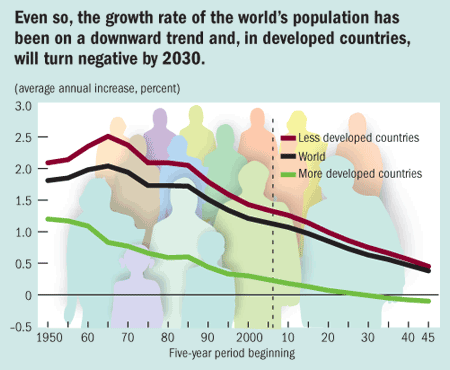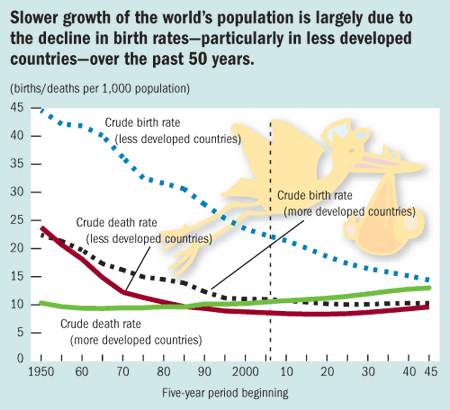|
Oh, right, thanks.
|
|
|
|

|
| # ? May 30, 2024 22:12 |
|
sitchensis posted:Even if the earth turned into a super oven with deserts everywhere, dead oceans, and huge sandstorms that would blast all our man made structures it would still literally be hundreds of times more amenable to human life than Mars. This point needs more attention. The reason Mars can not be teraformed to any degree of usefulness is it hasn't got a bloody magnetosphere which means it can't support , physically, an atmosphere of the sort that would support life and avoid it getting nuked by cosmic radiation. Thats not a hand waveable problem. Even if we utterly gently caress out climate, we PROBABLY won't be venusing it, as in fire and brimstone, although "cant actually live here unsupported" is definately in the realm of possibility. But even if human civilization needs to be supported to continue , earth is oxygen rich, has an ocean, has 1G of gravity which we have millions of years of evolution dedicated to working with, and even if it means sticking a loving dome over out head, can support agriculture. All things Mars might never. Unless we can somehow make mars have a magnetosphere and then crash shitloads of comets into it. My guess is the magnetosphere is the hard part. Anything that might make us want to flee earth, we won't find a better thing in space. Thats not to say we shouldn't try and put people on mars/etc. I truly believe our species is an interstellar one in embryo form. But its a long road there, and we want to make the gently caress sure we make it that far. (Personally I'd be dead keen on them figuring out some sort of hardcore lifespan extending poo poo so I can live long enough to see it. Ive seen star trek, I want a space helmet, and I'm prepared to wait till I'm a few hundred years old if I have to. Fucken scientists just need to figure that poo poo out) duck monster fucked around with this message at 03:33 on Mar 13, 2014 |
|
|
|
I highly doubt that there's any spacefaring civilization that bothers with planets other than the one that originated them. Mars is a future park, not a place for people to settle permanently in any significant numbers. In no way should this be interpreted as "let's not do everything we possibly can to mitigate GW because ~space habitats~!" Before you leave the cradle you have to not die of SIDS.
|
|
|
|
Ddraig posted:This is just "Well why don't we just live off the land and in a sustainable manner! No, it's not. Regardless of our situation, if you want our species to survive long term then we have to be on more than one planet. I really don't care about whether or not we currently can do it. I'm saying eventually planning the poo poo out will be necessary and it's something we could be more responsible with. Cost isn't going to matter when something extinction level happens. The "Technology will save us" bit really only works if you give a drat enough in the first place to actually fund something and it not just be 1/2 of one percent of your budget. What we can't do is because we don't have an organized effort to do it. If China said they were going to build a Mars military base in six months we would have one built in 4.
|
|
|
|
funkatron3000 posted:Unfortunately you're going to find that this thread will always equate space to star trek, any non-made made risks to humanity as sci-fi tinfoil hat hand waving, and that any off-earth colonization is impossible without full scale terraforming. A while back I lamented that anthropogenic climate change was going to harm our long term chances at getting off the planet and got blasted for it. Some stop reading at anything space related an assume you're only either talking about terraforming Mars and sending the whole population of earth or starting a private resort on Neptune for the rich while the earth turns into an oven. That's exactly what happened. I probably didn't get my point across well enough to be interpreted any other way as well.
|
|
|
|
duck monster posted:This point needs more attention. The reason Mars can not be teraformed to any degree of usefulness is it hasn't got a bloody magnetosphere which means it can't support , physically, an atmosphere of the sort that would support life and avoid it getting nuked by cosmic radiation. Thats not a hand waveable problem. To make Mars amenable to an atmosphere you have to add mass to Mars to increase its gravity and make it dense enough to initiate volcanism (for a magnetosphere). America Inc. fucked around with this message at 11:44 on Mar 13, 2014 |
|
|
Panzerkin3D posted:This will sound like hyper-ventilating panic, but it's really just a serious question predicated on the premise that everything will go to poo poo since no where near enough is being done to stop it. I think the best way to bear it in mind is to have an awareness of the extreme weather and climate events that happen around the world. Everytime one of those occurs, it implies additional costs to repair. The energy and resources put toward repairing damage (physical, social, environmental - all kinds) and mitigating future damage is energy and resources that in the past would have gone toward investment that would improve tomorrow or make today better. The key difference between those things (repair vs investment) is that the former just keeps us where we are, while the latter got us further ahead in the race. As to timing, trends in extreme weather and climate events started increasing in frequency decades ago, and it just keeps getting worse. Unlike in Alice in Wonderland, the Red Queen can't keep running forever, and eventually you lose the race. Forgone investments from here on out mean that benefits that would have flowed to you and your children in the future in the absence of climate change won't be there. And then, some things you're used to now will have to be sacrificed too. Simple example - higher flood insurance costs.
|
|
|
|
|
Panzerkin3D posted:This will sound like hyper-ventilating panic, but it's really just a serious question predicated on the premise that everything will go to poo poo since no where near enough is being done to stop it. Still, if you're in the first world already and you've got some money, you're gonna be really fine compared with folks elsewhere. If you want something to do individually, plan less for doomsday prepping and more for investing in sustainable living things (garden, water collection, maybe some solar stuff, whole lotta conservation and figuring out what you don't need) that will lower your relative cost of living as prices rise and can be scaled up for a limited degree of self-sufficiency if short-term shocks create shortages. That won't help with anything apocalyptic but that's not gonna happen overnight and having that kind of stuff taken care of will make it easier to dedicate effort to figuring things out once other people are more interested in figuring things out as a result of those pressures.
|
|
|
|
Negative Entropy posted:Even worse, Mars's gravity cannot support an atmosphere of nitrogen and oxygen necessary for life. Exactly, but I'm not adverse to crashing a few hundred ice asteroids into Mars if you aren't.  /scifi-fantasyland Yeah, anything even doable on paper with regards to terraforming of Mars is going to be incredibly hard compared to "hey guys, stop burning coal, oil, and natural gas and use nuclear power&renewables for everything possible".
|
|
|
|
this allusion meant posted:
To add onto this, the worst thing you could possibly do is go "off the grid" and buy a plot of land out in the middle of nowhere. If poo poo hits the fan, it's going to be resilient local communities that will save your rear end. I'd say the best way to "prepare" is to move to a mixed use, walkable, moderately dense neighbourhood where you can: 1. Live without being bound to a vehicle; 2. Walk to get groceries and access transportation; 3. Foster strong community ties. The world is inevitably going to get much smaller, and most large national institutions have shown themselves as being incapable of dealing with the myriad levels of crap that climate change will throw at us. Small, responsive and local institutions are best equipped to deal with the challenges on a regional-neighbourhood scale. That's probably what you want to invest your time and energy into if you want your kids to have something approaching the living standards you currently enjoy.
|
|
|
sitchensis posted:The world is inevitably going to get much smaller, and most large national institutions have shown themselves as being incapable of dealing with the myriad levels of crap that climate change will throw at us. Small, responsive and local institutions are best equipped to deal with the challenges on a regional-neighbourhood scale. That's probably what you want to invest your time and energy into if you want your kids to have something approaching the living standards you currently enjoy. I think it's understandable that people are losing their faith. However, it's tragic that they then develop a new and even more ridiculous faith in some alternative system. So take your post - half of it is level-headed, the other half shockingly naive. How are you so sure that these local institutions are "best equipped" to deal with these "challenges" - assuming you mean the challenge of societal decay? I don't mean to insult you but it sounds like something that you just believe in, probably not for any actual reason. Remember that if civilization really goes into decay, it's probably not going to lose its capacity for violence and coercion. I sincerely doubt society is just going to quietly parittion itself into smaller pieces in case of a crisis, much more likely is that there will be a drive towards centralization, through forceful means if necessary. And if such a society wants to get to you, they'll do it - no matter if you're living in some kind of repurposed suburb eco-community in California or in a tiny hut in the middle of Alaska. Not to mention that societal decay will most likely have unforeseen economical consequences. I doubt you can assess to any degree, what kind of society can even exist in case of such a decay and certainly you can't just randomly assume it will be the society you hope will come out of it. For all we know, a decentralized system based on local communities is completely unsustainable, or would look like a repurposed form of feudalism. Or maybe it is possible in some level but will be unable to defend itself from other systems - like you think religious nuts and neo-Confederates don't have plans of action in case of a general societal crisis. To be honest, I think this kind of thinking about the future is just naive and impractical. I guess it's better than the primitivist "the survivors all live happily in egalitarian consensus-based tribes after 7 billion people die horribly" - but I don't think it's a clear-headed view of reality.
|
|
|
|
|
I think all s/he was saying was that if you want to do something practical you should get involved in your community garden and your neighbourhood watch committee or whatever rather than hitting the hills or investing a lot of time into national politics.
|
|
|
Paper Mac posted:I think all s/he was saying was that if you want to do something practical you should get involved in your community garden and your neighbourhood watch committee or whatever rather than hitting the hills or investing a lot of time into national politics. Yes, I think that's a good summary of what he said. So?
|
|
|
|
|
Dusz posted:
Great reply! I appreciate what you are saying. And I am not proposing that engaging in smaller scale institutions is the be-all-and-end-all of civic order, but moreso that they can at least be more responsive "on the ground" to the needs of people. Federally, at least in my country, we are seeing any sort of action on addressing climate change stymied by politics and useless "debate" over whether it's a thing or not. On the ground, in the cities, municipal governments are trying to exert their autonomy and address these issues because they will be directly impacted by whatever happens. All I'm saying is that if you want to take action, looking at local institutions is your best bet rather than trying to become president of everything. This is not to say that such institutions are free from influence or incapable of doing wrong. But if we accept the fact that looking at smaller scale governance (within a larger federal/state/provincial system) is a good way to address climate change issues, you can then start to narrow down what type of communities will likely be more resilient in terms of physical and geographic properties. If you live somewhere that is a spaghetti string of cul-de-sacs, utterly reliant on cars for day to day needs, utilizes just-in-time delivery methods for local needs, and is located somewhere that is susceptible to water shortages, then quite clearly you should think about moving somewhere that is somewhat more amenable to survival within the context of a world with strict limits on carbon emissions and/or much greater probability of climatic chaos.
|
|
|
|
I should also point out that my viewpoint is from a purely first world perspective. Regardless though, people will be moving to find better environmental conditions. And that's where, on a global scale, the real problems will very much start.
|
|
|
|
Dusz posted:Yes, I think that's a good summary of what he said. So? What's "naive and impractical" about noting the national and international institutional failure to deal with climate change and suggesting that local resilient capacity-building is something that communities might profitably pursue in dealing with specific consequences of climate change? I find the framing of the original question ("civilisational apocalypse") to be kind of unhelpful, but to the extent that you're worried about climate change, "investigate problems in your local area and work to build the capacity of the community to deal with those problems" seems like reasonable advice to me.
|
|
|
sitchensis posted:Great reply! I appreciate what you are saying. And I am not proposing that engaging in smaller scale institutions is the be-all-and-end-all of civic order, but moreso that they can at least be more responsive "on the ground" to the needs of people. Federally, at least in my country, we are seeing any sort of action on addressing climate change stymied by politics and useless "debate" over whether it's a thing or not. On the ground, in the cities, municipal governments are trying to exert their autonomy and address these issues because they will be directly impacted by whatever happens. All I'm saying is that if you want to take action, looking at local institutions is your best bet rather than trying to become president of everything. Certainly there has to be engagement at the community level. It makes sense because (as far as I can tell) people are most occupied with their tiny slice of the world - themselves, their friends and family, neighbors and co-workers. I think in this context people still understand the benefit of doing something together, for the good of the social unit. However, I think the national and global scale cannot be ignored. I think your criticism of national politics is understandable but I still want to make the following point. Even if there is seemingly no progress in national politics, that doesn't have to mean there never will be. I think on that scale, you have to accept doing things without seeing immediate rewards. If you look at the way countries change, they can very well do so in the form of sudden bursts, preceded by a build up of incipient consciousness. By the latter I mean people developing the idea that something is wrong, and that it can be fixed. So with the Civil Rights movement, oppressed minorities never forgot that the system was unjust, and over time people in the northern US started to share that view. The pressure grew over time but the system was painfully slow to change - people were still being lynched over half a century after the formal end of slavery. However, when the moment did come, progress pushed forward irresistibly (up to a point) because the pressure was there. Maybe, something similar could happen that would be pro-environment. Now to be absolutely fair, I can't say it will come or it will succeed but I think it's probably necessary. I think the national/international level can't be ignored because ignoring it assumes not just that it won't be of any use but also in some way, that it won't get in the way. I think that without work, there's the danger that very nasty things could happen at the national/international level that might make an answer of any sort a moot point. Hence, I think it's necessary to be engaged if only to keep that danger in control. Dusz fucked around with this message at 22:43 on Mar 13, 2014 |
|
|
|
|
I think it's worth noting that strong grassroots community organisations are going to be essential to policy changes on the national and international level anyway. I don't know how you'd apply pressure to the political and business elites without them.
|
|
|
Paper Mac posted:I think it's worth noting that strong grassroots community organisations are going to be essential to policy changes on the national and international level anyway. I don't know how you'd apply pressure to the political and business elites without them. I can agree to that, sure.
|
|
|
|
|
Time to pack it in civilizationailuresThe Independent posted:Modern civilisation is heading for collapse within a matter of decades because of growing economic instability and pressure on the planet’s resources, according to a scientific study funded by Nasa. A few decades eh? I hope none of you have a retirement plan or, god forbid, children.
|
|
|
|
The Roman Empire was only ended by Turkish invaders so I don't see why that would be an issue.
|
|
|
|
He called his method for predicting the doom of civilization the Handy method? Sounds serious.
|
|
|
|
sitchensis posted:“Collapse can be avoided and population can reach equilibrium if the per capita rate of depletion of nature is reduced to a sustainable level, and if resources are distributed in a reasonably equitable fashion,” the scientists said. You heard the man, full communism is the answer, pick up a rifle and get cracking 
|
|
|
|
Renaissance Robot posted:You heard the man, full communism is the answer, pick up a rifle and get cracking 
|
|
|
|
computer parts posted:The Roman Empire was only ended by Turkish invaders so I don't see why that would be an issue. Whew. Slightly more seriously though, we're going to see a lot of land open up for cultivation or homesteading in Greenland soon, aren't we?
|
|
|
|
SnakePlissken posted:Whew. More likely mining.
|
|
|
|
Dr. Furious posted:More likely mining. Oh yeah. Dibs on the ivory!
|
|
|
|
sitchensis posted:Time to pack it in civilizationailures It's unbelievably annoying and super gauche to pimp your poo poo to science journos on acceptance, I gotta say. There's no preprint available that I can find in Ecological Economics and there's nothing else available about Motesharri that I can find. If I didn't know better I'd say someone is taking some science journos for a ride.
|
|
|
|
computer parts posted:The Roman Empire was only ended by Turkish invaders so I don't see why that would be an issue. The JDPON is coming. Just you wait.
|
|
|
|
Paper Mac posted:It's unbelievably annoying and super gauche to pimp your poo poo to science journos on acceptance, I gotta say. There's no preprint available that I can find in Ecological Economics and there's nothing else available about Motesharri that I can find. If I didn't know better I'd say someone is taking some science journos for a ride. http://www.atmos.umd.edu/~ekalnay/pubs/handy-paper-for-submission-2.pdf Also seeing a lot of lovely journalism where writers just copy+paste the original Guardian article (which is by a somewhat dubious author, looking at his past articles). E: Looking at the Summary the paper appears to have a later sequel. America Inc. fucked around with this message at 11:13 on Mar 18, 2014 |
|
|
|
FADEtoBLACK posted:No, it's not. Regardless of our situation, if you want our species to survive long term then we have to be on more than one planet. I really don't care about whether or not we currently can do it. I'm saying eventually planning the poo poo out will be necessary and it's something we could be more responsible with. Cost isn't going to matter when something extinction level happens. Nope, you're completely wrong- think of the worst thing you can think of and earth would still be more habitable than literally every single object within 10 light years of us. It's hard to understate how lovely the other human-reachable planets are for us. Again, sitchensis posted:Even if the earth turned into a super oven with deserts everywhere, dead oceans, and huge sandstorms that would blast all our man made structures it would still literally be hundreds of times more amenable to human life than Mars. except replace mars with "anywhere but earth". Honestly the only thing I can think of that would come close is civilization ending size rock smacking us, but even then it would be monumentally easier to make contingencies for that on earth than leave the planet. And not to rehash something that's pages old but I can't resist: computer parts posted:We have a food surplus right now, and we have a population which is not exponentially increasing, despite what you may think. Food production is not the pressing issue. What? When most our parents were born there were only 2-3 billion people, now there are 7 and the past several of those we have been adding on about 1B/12-14 years. I think people forget this explosion of (exponential!) growth has only shown to be "sustainable" for a couple decades- we have no idea whatsoever what the long term consequences are. If the more severe predictions associated with CC are correct food production will most certainly be an issue in our lifetime- and along with that, lack of potable water, and the extinction of cheap energy I have no idea how we can maintain the same worldwide population as when those things weren't an issue.
|
|
|
|
enbot posted:What? When most our parents were born there were only 2-3 billion people, now there are 7 and the past several of those we have been adding on about 1B/12-14 years. I think people forget this explosion of (exponential!) growth has only shown to be "sustainable" for a couple decades- we have no idea whatsoever what the long term consequences are. If the more severe predictions associated with CC are correct food production will most certainly be an issue in our lifetime- and along with that, lack of potable water, and the extinction of cheap energy I have no idea how we can maintain the same worldwide population as when those things weren't an issue. http://www.imf.org/external/pubs/ft/fandd/2006/09/picture.htm quote:The phenomenal growth in world population has occurred double nine fucked around with this message at 15:10 on Mar 18, 2014 |
|
|
|
Having just finished up on the last pages though, I thought the discussion on meat was rather interesting as it ties into a much broader problem. How do we balance the ideas of "social justice" (or whatever word) and the need for immediate action? The current way of doing things has been massively beneficial to the poor of the world- the last 200 years have seen incredible growth in per capita GDP and life expectancy/quality. Cheap (dirty) energy has certainly been a large driver of that- without it Malthusian arguments could very well have held. Many poorer countries today of course want to emulate that, which according to many people studying CC would be utterly devastating for the planet. Solutions I have seen include massive transfers of wealth, but that seems so unlikely I'm not even sure it's worth discussing. I'm not sure I've ever seen a plausible proposal on how to move forward on the issue and increasingly these countries are the ones emitting the most greenhouse gas. The beef thing seems pretty simple, it would have to be a luxury simply because there's no way to mitigate CC and feed 7 and up billion people consuming it like the average american. Nothing can "fix" this- subsidies just exacerbate it - because the issue is that much consumption necessitates factory farming and huge releases of greenhouse gas. Of course I don't really think it's an issue because chicken has the needed protein people were worried about and are only marginally worse than most fruits/veggies to produce. But like I said, it really hits on one of the biggest fights I see among environmentalists outside of the nuclear issue. The global poor becoming like the west would massively increase their quality of life (as it did for us) but simultaneously release tons of greenhouse gas. It seems like the only way forward that will quickly reduce co2 production while meeting the growing energy needs of china/india/africa is a massive worldwide investment in nuclear energy and some alternative fuels, with the richer countries helping out the poorer countries. But that seems to be a non-starter as well, again because there is huge opposition among environmentalists.
|
|
|
|
The rate is slowing, sure, never said it wasn't. We are still growing though and will probably hit 8 billion in another decade.
|
|
|
|
enbot posted:It seems like the only way forward that will quickly reduce co2 production while meeting the growing energy needs of china/india/africa is a massive worldwide investment in nuclear energy and some alternative fuels, with the richer countries helping out the poorer countries. But that seems to be a non-starter as well, again because there is huge opposition among environmentalists. India is already doing that though, and China is following (albeit more slowly and this may be disrupted by their coming depression).
|
|
|
|
computer parts posted:India is already doing that though, and China is following (albeit more slowly and this may be disrupted by their coming depression). Kinda, but they (india) are still getting something like 80% of their energy from coal and oil. The way some people are talking about how much we need to reduce greenhouse gas output by in the next decade that needs to be 0 in India/US/China, like today. e: There would also have to be massive subsidies in electric vehicles. The vehicle usage in those countries is exploding and if they ( and the US) are just burning it up in cars switching to nuclear won't matter much. enbot fucked around with this message at 15:48 on Mar 18, 2014 |
|
|
|
enbot posted:a non-starter as well, again because there is huge opposition among environmentalists. How can you read this thread and still think environmentalists have so much power?
|
|
|
|
You sorta missed the whole point (and that's not what I said anyway). The people who care most about stopping climate change and the people who are opposed to nuclear share a large overlap in the venn diagram. And yes, the anti-nuclear lobby is not weak- mainly because it aligns with big industry often. Like Yucca Mountain. e: or germany enbot fucked around with this message at 16:01 on Mar 18, 2014 |
|
|
|
I still don't understand why germany's Bundestag overreacted so hard when Fukushima happened.
|
|
|
|

|
| # ? May 30, 2024 22:12 |
|
Germany as a political entity has proven time and time again that they don't do long term planning. I'm almost certain it's not in the german vocabulary at this point. "Lets replace all our nuclear power with solar power and russian gas. Don't see how that could ever backfire." That and Merkel wasn't very popular at the time of the Fukushima disaster as far as I remember it. The decision might have been catastrophic for the country but it worked wonders for opinion pools.
|
|
|





















